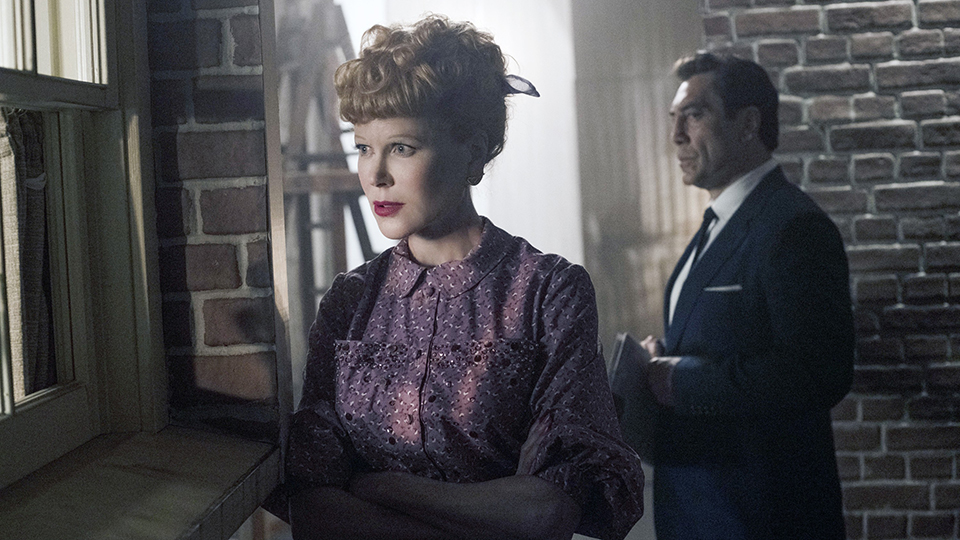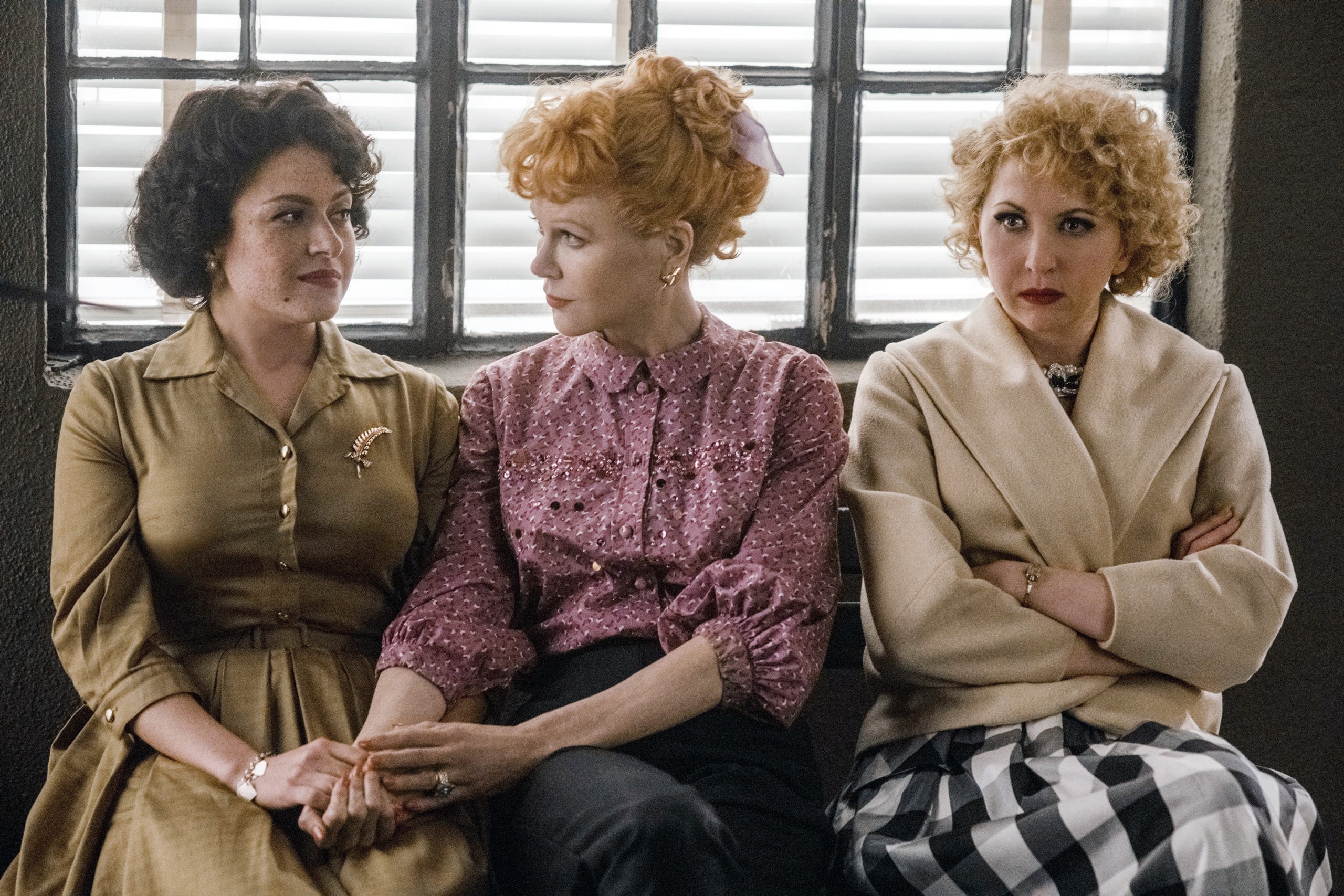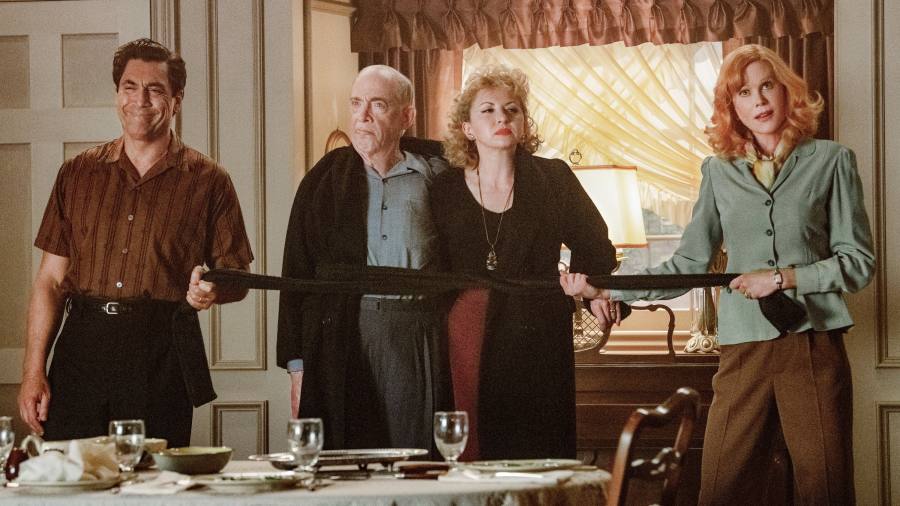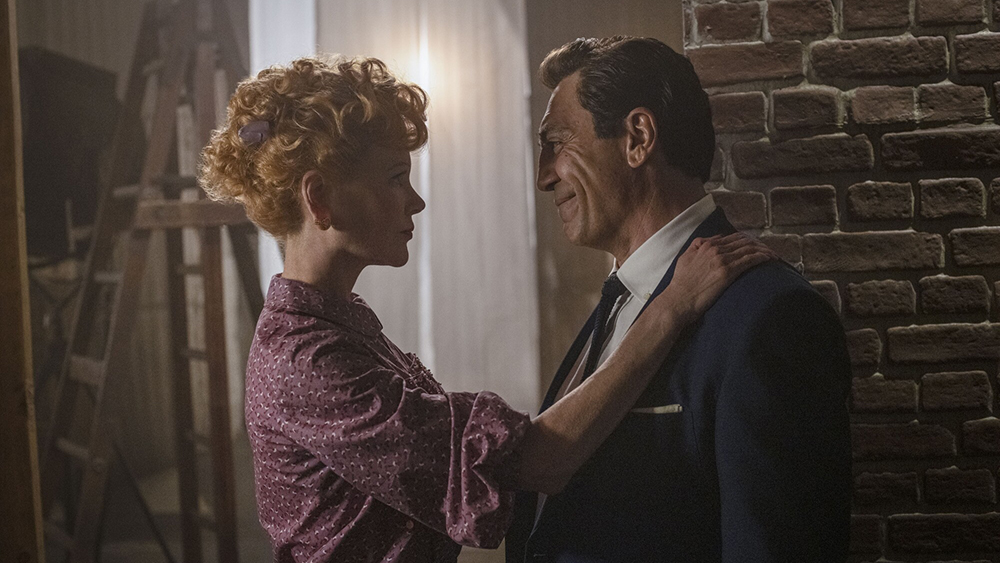Writer-director Aaron Sorkin has a natural interest in the events surrounding Lucile Ball’s exposure as a one-time communist party “sympathiser.” They allow him to reproduce another era and examine it through the lens of the politics of the left, as he did with last year’s best picture nominee The Trial of the Chicago 7. They let him pull back the curtain on the machinery of a complex product meant for the consumption of the public, as he did during the run of The West Wing. They even create the excuse for one of his famous walk-and-talks, where characters engage in rapid-fire back-and-forth while walking through some busy environment. That’s as much a trademark for Sorkin as the Mexican standoff is for Quentin Tarantino.

What Being the Ricardos can’t do, though, is convince its audience of the need for this story to be told in 2021. Except that Sorkin’s fight against the right is evergreen, so every movie with political leanings has an ongoing relevance, from a certain point of view.
Of course, as much as anything, the reason to make a movie like this is to cast an actress to fill Ball’s iconic shoes. One of the most gifted physical comediennes of all time, Ball is a dream role for any actress who fancies herself the heir apparent to the sort of comedy Ball parlayed into history’s most popular sitcom, which drew 60 million viewers per episode during its six-year run in the 1950s. Interestingly, Nicole Kidman doesn’t play up that aspect of the character, as Being the Ricardos shows her a lot more off camera than on. That decision by Sorkin and Kidman prevents the film from lapsing into the realm of mere parlour trick, but it also robs Being the Ricardos of a primary raison d’etre, further weakening its argument for its own existence.
The film focuses on the week-long production period of episode 68 of the domestic comedy I Love Lucy, the show that featured Ball on screen with her real-life husband, Desi Arnaz (Javier Bardem). The week starts with whisperings that Ball is about to be exposed for ticking a box nearly 20 years earlier that listed her as a member of the communist party, an action she and her siblings took as a sign of solidarity with their socialist grandfather. It ends with a newspaper headline in what Ball refers to as “Hindenburg typeface,” and true enough, Ball’s affiliation with the party could be as personally devastating, to the show and to her career, as that famous dirigible accident.
During that week, we also flash back to significant moments in Ball’s life with Arnaz, including their first meeting, Ball’s transition from radio to TV, and Arnaz demanding her real-life pregnancy be worked into the arc of the show. There are also documentary-style present-day interviews with others from the set, who provide context that could mostly be inferred from what we see. The jumping around of the story can be a bit hard to follow, especially since Kidman is a bit too old for Ball no matter what the exact year is. We also learn about the dynamics between the stars and these various writers and producers, between them and the actors playing their I Love Lucy landlords Fred and Ethel Mertz (J.K. Simmons and Nina Arianda), and between each other, as Desi’s philandering is potentially leading their marriage to ruin.
The present-day interviews, which feature the likes of Linda Lavin and Ronny Cox, keep telling us what an epic week it was, with Lavin’s character even suggesting, without hyperbole, that Lucy and Desi “almost died.” The primary shortcoming of Being the Ricardos, which can probably be traced to much of Sorkin’s work, is that it should be showing us this rather than telling us. There’s evidence that this week was as momentous as the film insists, but Sorkin, who wrote scripts and screenplays for two decades before he ever directed, doesn’t trust his images to convey what his words do far less elegantly. The movie so desperately wants you to believe it’s telling an outrageous story that your defences go up, and you begin judging the narrative just because it can’t live up to that impossible standard.
That’s akin to the standard Kidman has difficulty meeting, given the expectations created by Ball’s larger-than-life personality. It’s undoubtedly wise that Kidman doesn’t submit a big impersonation of Ball, as that would undercut the film’s attempts to demonstrate her struggles under personal and professional pressures. Still, the discrepancy between what we thought we might be getting in a screen depiction of Ball, and what we actually get, can’t help but feel disappointing. Kidman, Bardem and Simmons have all been nominated for prominent year-end awards, which indicates Sorkin’s ability with actors even though he may not yet excel from a visual standpoint, and there’s no doubt Kidman is turning in her typical strong work here. Her moments of transcendence are those she underplays.
In terms of content, the most interesting parts are where Ball and Arnaz try to make the show better. The portrait of Ball that emerges is of an occasionally prickly perfectionist, but one whose notes were certainly on point. She interrogates the logic behind a scene where Ricky sneaks up on Lucy and covers her eyes, making her guess who it is, and none of the way this scene plays is consistent with the characters they’ve developed. She also shows a knack for staging and vastly improves the blocking in one particular scene during a late-night bout with insomnia. There’s no doubt Ball “had it,” which is everything from great comedic chops to an intuitive understanding of television, and though his moments aren’t demonstrated as often, it’s clear Arnaz deserved his role alongside her for reasons other than just nepotism. The way he factors into the climax is crucial, even moving.
What may be a fatal remove in this film, though, is that ongoing question of its relevance. Not every story from Hollywood history, or history in general, is equally worth telling. Sorkin has found credible enough rationale for telling this one, but perhaps even the best version of Being the Ricardos could never rise to the level of being more than a curiosity and, yes, a little bit of a parlour trick. This might actually be the best version of Being the Ricardos, making it something you should watch, but maybe not something you’ll be inclined to remember in a holiday season jam-packed with year-end awards contenders.
Being the Ricardos is currently streaming on Amazon Prime.


